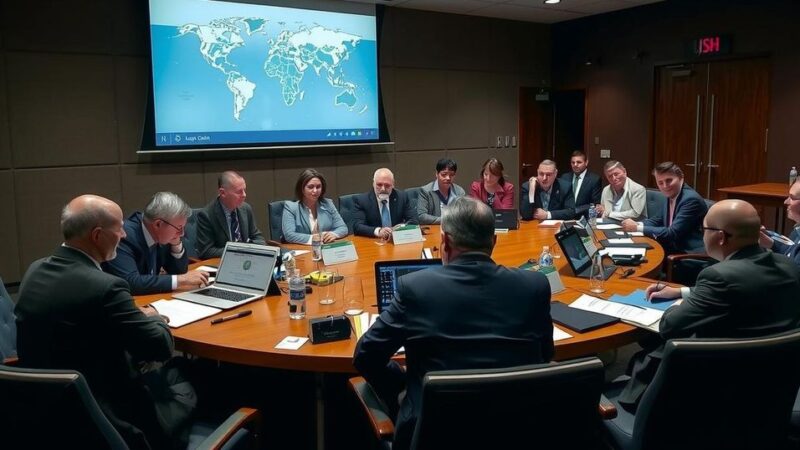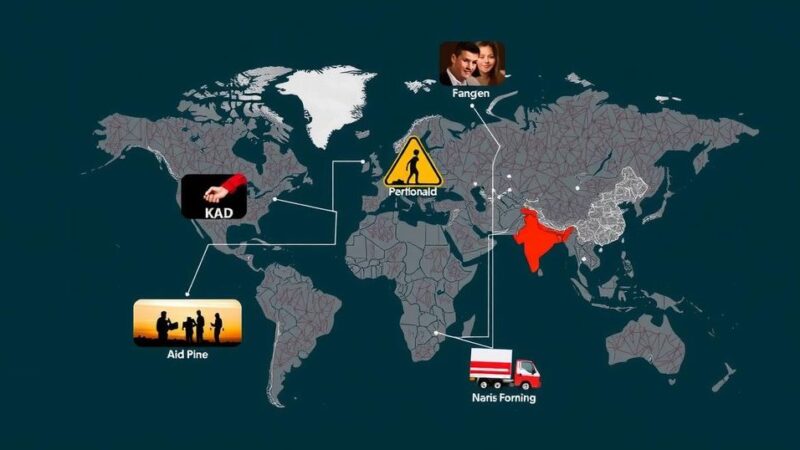Southeast Asian leaders met on October 9, 2024, in Laos for the ASEAN summit, primarily focusing on the Myanmar crisis and tensions in the South China Sea. With new leadership dynamics and global powers in attendance, discussions will also include the ongoing geopolitical impacts from conflicts, particularly concerning the Middle East. The summit aims to foster unity while addressing challenges faced by member states.
On October 9, 2024, Southeast Asian leaders convened in Vientiane, Laos, for the ASEAN summit, focusing on critical issues such as the ongoing civil war in Myanmar and increasing tensions in the South China Sea. The summit serves as a significant platform for regional cooperation and dialogue with global powers, including discussions regarding geopolitical challenges in the Middle East. Prime Minister Sonexay Siphandone of Laos welcomed leaders from Thailand and Singapore, emphasizing the importance of unity among ASEAN members. Noteworthy new leaders at the summit included Thailand’s Paetongtarn Shinawatra and Singapore’s Prime Minister Lawrence Wong. While President Joko Widodo of Indonesia opted to send Vice President Ma’ruf Amin, U.S. Secretary of State Antony Blinken represented President Joe Biden. The agenda is expected to include discussions on U.S.-China relations amidst territorial disputes in the South China Sea, as well as the humanitarian crisis in Myanmar, which has resulted in widespread violence and displacement since the military coup in 2021. ASEAN’s efficacy in addressing these challenges remains under scrutiny, particularly regarding its handling of Myanmar’s political crisis, where the junta continues to reject peace initiatives despite agreeing to ASEAN’s proposals. Furthermore, a meeting to discuss the Myanmar crisis has been scheduled for December, though it remains uncertain who will represent Myanmar at that event.
The Association of Southeast Asian Nations (ASEAN) has encountered significant credibility issues due to ongoing conflicts within its member states, particularly the civil war in Myanmar. Following the military coup that ousted Aung San Suu Kyi’s government in February 2021, Myanmar has plunged into unrest with immense human suffering, leading to widespread casualties and displacement. As ASEAN aims to foster regional stability, it must navigate complex relationships with major powers, especially amid rising tensions in the South China Sea, where assertive claims by China have provoked disputes with several ASEAN members. The evolving dynamics of global influence also necessitate that ASEAN leaders reconcile their individual national interests with regional cooperation.
In conclusion, the recent ASEAN summit held in Laos represents a critical opportunity for regional leaders to address pressing issues, notably the Myanmar crisis and South China Sea tensions. With the inclusion of new leadership and significant global representation, the forum is poised to facilitate dialogues on vital geopolitical matters. However, the effectiveness of these discussions remains contingent on the willingness of member states to prioritize collective interests over national agendas, especially in light of the serious humanitarian crises unfolding in Myanmar and the contentious territorial disputes with China.
Original Source: www.thehindu.com






